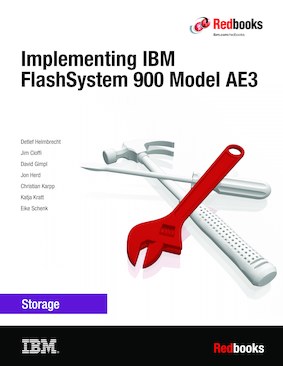Abstract
Today's global organizations depend on being able to unlock business insights from massive volumes of data. Now, with IBM® FlashSystem 900 Model AE3 that is powered by IBM FlashCore® technology, they can make faster decisions that are based on real-time insights. They also can unleash the power of the most demanding applications, including online transaction processing (OLTP) and analytics databases, virtual desktop infrastructures (VDIs), technical computing applications, and cloud environments.
This IBM Redbooks® publication introduces clients to the IBM FlashSystem® 900 Model AE3. It provides in-depth knowledge of the product architecture, software and hardware, implementation, and hints and tips. Also presented are use cases that show real-world solutions for tiering, flash-only, and preferred-read. Examples of the benefits that are gained by integrating the FlashSystem storage into business environments also are described.
This book is intended for pre-sales and post-sales technical support professionals and storage administrators, and anyone who wants to understand how to implement this new and exciting technology.
Table of Contents
Chapter 1. Introduction to FlashSystem
Chapter 2. IBM FlashSystem 900 Model AE3 architecture
Chapter 3. Planning
Chapter 4. Installation and configuration
Chapter 5. Non Volatile Memory express
Chapter 6. IBM FlashSystem 900 client host attachment and implementation
Chapter 7. Using IBM FlashSystem 900
Chapter 8. Configuring settings
Chapter 9. Product integration
Chapter 10. Capacity Planning and Monitoring
Chapter 11. Use cases and solutions
Chapter 12. Hints and tips
